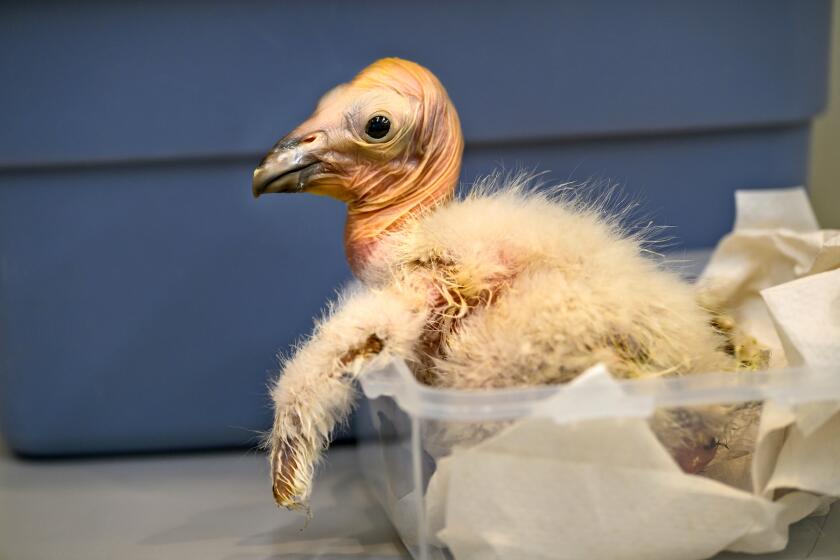Sounds, Not Silence, Greet Woman Deaf for 15 Years
Fifteen years after going deaf, Denise Neel remembered the simplest sounds best--rain, songbirds, crickets.
She never knew the voice of her youngest son, now 13, and music was a muffled memory.
But with a series of electronic beeps, the walls of silence have come tumbling down for Neel. A computerized device implanted in her right ear last month sends impulses of sound past her damaged auditory nerves, letting her hear once again.
“It’s the perfect birthday gift,” said Neel, who turned 45 May 29.
More than 15,000 Americans have received so-called cochlear implants since they became widely available in the 1980s. Unlike traditional hearing aids, which merely amplify sound, an implant can transmit electronic impulses directly to the brain, bypassing damaged eardrums or nerve endings.
Companies are trying to make the implants better and smaller and still effectively restore hearing to the deaf.
After abnormal bone growth destroyed nerve endings in her ears, Neel became a willing guinea pig in an effort by the Denver-based Cochlear Corp. to obtain government approval for its technology.
Dr. Douglas Chen, who implanted the device in Neel, said as many as 2 million deaf Americans could benefit from it.
The first squeaky sounds of speech came to Neel after a 90-minute tuneup of 24 electrodes implanted under her scalp and in her cochlea, a snail-shaped chamber that houses the auditory nerves.
Technicians at Allegheny General Hospital in Pittsburgh adjusted each electrode until Neel could hear a beep, then audiologist Maureen Limbacher-Wargo spoke to her in a slow, deliberate voice test.
“It’s very funny. It sounds like Minnie Mouse,” Neel said.
*
A plastic microphone looped around her ear gathered sounds and sent them to a hand-held minicomputer the size of a cigarette case. The computer converted the sounds to radio waves and sent them though wires and a magnet to the strand of electrodes that Chen implanted in April.
Neel, who makes a living cleaning houses in Carmichaels, 65 miles south of Pittsburgh, said the unfamiliar sounds “rumbling together” in her ear made her nervous.
“I can’t remember the last time I could hear my own voice,” she said. “I’m hoping that I’ll be able to hear my children, and I want to hear my husband.”
Cochlear Corp. has tested its newest version of the implant on about 130 people. It comes in two models: the box-shaped unit and a more compact version that fits behind the ear.
It costs about $30,000 for the device, surgery and rehabilitation.
*
Peter Arkis of the Warren Otologic Group in Warren, Ohio, said people who have lost their hearing from an accident or infection, like Neel, are ideal candidates for a cochlear implant.
“Many of our patients are able to have telephone conversations again, and these are people who were completely deaf before,” said Arkis, who has worked on about 200 cochlear implants as the group’s audiology director.
“I think that we have just begun to see what the implant can do, and I think that the future is incredibly bright,” said Donna Dickman, executive director of the nonprofit Alexander Graham Bell Assn. for the Deaf.
Experts acknowledge that there are difficulties with installing an implant in someone who could never hear; it means teaching someone to distinguish the sound of a human voice from, say, that of a barking dog.
“It’s not unlike owning a violin but having no lessons,” Dickman said.
Neel blames herself for not learning sooner about implants. She said a doctor told her she would never hear again after the bones destroyed the hairlike auditory nerve endings in her left ear and then, 10 years later, in her right.
She wore hearing aids to capture “basic noise” but was otherwise deaf. She learned about implants from a hearing-aid repairman.
After three months with the computer, Neel will try out the smaller unit. She said the biggest payoff will be greater independence.
Her coal miner husband, Dave Neel, guessed at the implications.
“There goes our phone bill,” he said, with a laugh.



